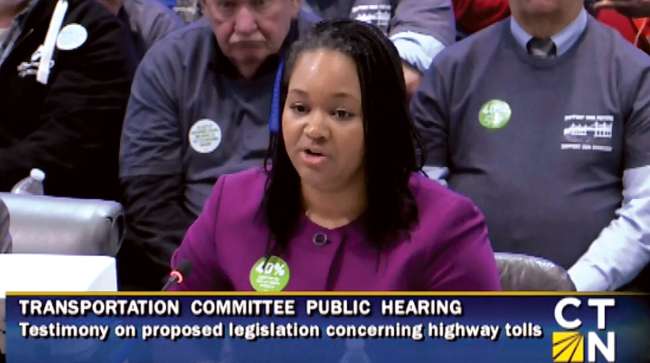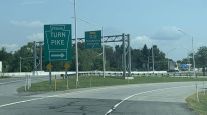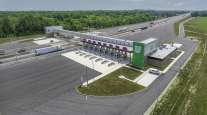Staff Reporter
Two Tolling Plans for Connecticut Debated at Hearing

Connecticut lawmakers spent 11 hours peppering transportation officials with questions and listening to public input on Gov. Ned Lamont’s proposal for electronic tolls at a hearing March 6.
The governor’s budget proposal, presented to the General Assembly on Feb. 20, includes two possible plans: one that would toll only trucks and one that would toll cars and trucks. Lamont has indicated that tolling cars and trucks is the fastest and most effective way to raise money for infrastructure projects to address congestion. He identified interstates 95, 91, 84 and the Merritt Parkway as key routes where congestion is crippling.
Answering questions before the Transportation Committee, Office of Policy and Management Secretary Melissa McCaw emphasized that the trucks-only plan is not practical because it would raise only about $200 million, while the option that includes cars and trucks would generate about $800 million.
“We know that that tool alone is not a viable option,” McCaw said.
Besides asking McCaw and representatives of Connecticut’s Transportation and Economic Development agencies questions, lawmakers spent nine hours accepting testimony from constituents, construction professionals, haulers, engineers, local leaders and their fellow lawmakers.
Most toll opponents argued that Connecticut lawmakers couldn’t be trusted to properly use revenue created through tolls, despite a recent lockbox measure meant to ensure that transportation revenue is used only for transportation-related purposes.
Thurston Foods CEO Peter Malone recognized the need for infrastructure investment but said state lawmakers have a dubious history of mismanagement. A food service distributor based in Wallingford, Thurston Foods is the largest public school food supplier in southern New England. Malone estimated that tolls would cost his company $250,000 to $300,000 a year.
“Connecticut does not have a revenue problem. It has a spending problem,” Malone said. “There’s an inherent distrust of what happens once a revenue source is tapped.”
McCaw stated that any toll revenue would be used expressly for infrastructure. CTDOT Commissioner Joseph Giulietti pointed out that the federal government will not allow Connecticut to use toll revenue generated on interstates for anything other than infrastructure projects.
Tolling could supply a revenue stream to reinvigorate cities and towns, according to representatives of the Connecticut Conference of Municipalities in support of the plan. Waterbury Mayor Neil O’Leary, who also is CCM president, said strong transportation infrastructure is crucial to the welfare of cities. He said a recently finished project to widen I-84 near Waterbury drew more businesses and employment opportunities to his city.
“There are people who are concerned about it. They’re afraid it’s another tax. I don’t care what you call it,” said Rudy Marconi, first selectman of the Town of Ridgefield and CCM board member. “The fact is, we’re starving for money in the state of Connecticut.”
Donald Shubert, president of the Connecticut Construction Industries Association, said infrastructure projects made possible through toll money could boost the state’s construction industry, which has been suffering since the Great Recession. He said he sees members of his association finding work in other states.
“There isn’t enough volume of work in Connecticut. There hasn’t been since 2008,” Shubert said. “We’ve been hanging on by our fingernails since then.”
According to Thomas Maziarz, chief of policy and planning at CTDOT, the governor’s plan suggests 53 tolling gantries distributed across 330 miles, but that number is adjustable as lawmakers continue to deliberate.
The plan aims to minimize the burden on Connecticut residents and place the onus on out-of-state drivers. Lamont has claimed he would only consider a tolling option if the state maximized a discount for Connecticut EZ-Pass users and presented a “frequent driver” discount for people who regularly travel on major roadways.
Glastonbury resident Jennifer Siskind noted that many out-of-state travelers move through Connecticut, such as people traveling to universities and beaches in New England.
Although the testimony became heated at times (some people arrived at the Capitol at 6 a.m. and waited until early evening for their turn to speak), virtually everyone agreed on the need for infrastructure investment. Giulietti said that many projects, such as improving I-84 viaducts in Hartford and rehabilitating the Gold Star Bridge in New London, are in danger of being canceled or delayed if the state doesn’t secure more infrastructure funds.
“We’re at a crossroads, literally as well as figuratively in terms of how we proceed in the future for how we maintain our infrastructure,” said Rep. Carlo Leone, chair of the Transportation Committee. “What we can’t do is afford to fall behind.”



